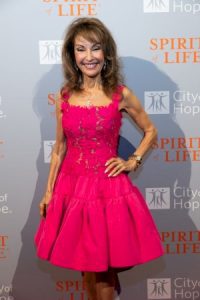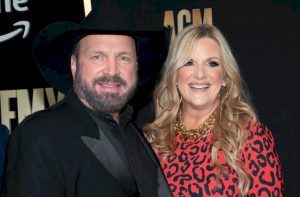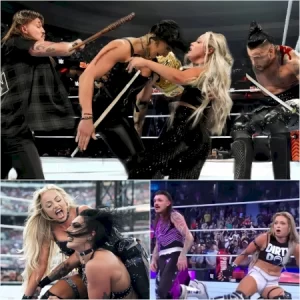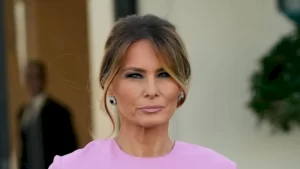Prince Harry’s book says “I was brought into the world in case something happened to Willy” but Princess Diana’s account suggests an alternative motivation.
Spare says Harry was born to be an organ donor in case Prince William needed “a spare part. Kidney, perhaps. Blood transfusion. Speck of bone marrow.”
However, Princess Diana told her secret biographer Andrew Morton in tapes for his 1992 book Diana: Her True Story how Charles had been disappointed not to have a daughter. The distinction is significant because the rules of primogeniture at the time meant a male “spare” would have been seen as more valuable than a female one.
Queen Elizabeth II’s daughter, Princess Anne, was the second born of her generation but third-born Prince Andrew became the “spare” to Charles because he was male. So for Charles to have wanted a girl would suggest an additional, and more emotional, motivation beyond simply providing a substitute to the future King William.
Diana told Morton: “Charles always wanted a girl. I knew Harry was a boy and I didn’t tell him. Harry arrived, Harry had red hair, Harry was a boy. First comment was: ‘Oh God, it’s a boy,’ second comment: ‘and he’s even got red hair.'”
So disappointed was Charles at having a second son that he was still talking about it with Diana’s mother three months later at Harry’s christening in December 1984. “Charles went to talk to my mother at Harry’s christening and said: ‘We were so disappointed—we thought it would be a girl.'” The princess herself also described Harry as a “backup” and clearly saw his gender as part of that status. “Harry was supposed to be a girl,” she added. “[Charles] was absolutely amazed and he adores him. But I know we had two boys for a reason. We were the only people in the family to have two boys. “The rest of the family had a boy and a girl and we were the first to change and I know fate played a hand there—Harry’s a ‘backup’ in the nicest possible way. William is going to be in his position much earlier than people think now.”
Harry’s account of the reason he “was brought into the world” differs from Diana’s in a number of ways, not least of all the passage does not convey his father’s enthusiasm during early parenting.
“Two years older than me, Willy was the Heir, whereas I was the Spare,” he wrote. “This wasn’t merely how the press referred to us—though it was definitely that. “This was shorthand often used by Pa and Mummy and Grandpa. And even Granny.
The Heir and the Spare—there was no judgment about it, but also no ambiguity. “I was the shadow, the support, the Plan B. I was brought into the world in case something happened to Willy. I was summoned to provide backup, distraction, diversion and, if necessary, a spare part. “Kidney, perhaps. Blood transfusion. Speck of bone marrow. This was all made explicitly clear to me from the start of life’s journey and regularly reinforced thereafter.
“I was twenty the first time I heard the story of what Pa allegedly said to Mummy the day of my birth: ‘Wonderful! Now you’ve given me an Heir and a Spare—my work is done.’ A joke. Presumably.” The word “presumably” invites readers to conclude that Charles was not interested in parenting so much as his duty to provide a future generation of royals.
However, that does not appear to be Diana’s perspective as she paints Charles as a loving father: “[Charles] loved the nursery life and couldn’t wait to get back and do the bottle and everything. He was very good, he always came back and fed the baby. I [breast] fed William for three weeks and Harry for eleven weeks.” Morton told Newsweek: “He had a sentimental attachment to having a girl as many fathers do. The way it was put to me was that it was in that light. “And she would kind of tease him that if they made their marriage work maybe she could have a girl in the future.
A third child. “She always made it clear in the tapes and conversations with me or with [her friend] James [Colthurst] that he was a backup in the nicest possible way, so it wasn’t about him being an organ donor but a friend and supporter to William. She wanted him to be a wing man not a hit man.” “I have to say it’s a bit dramatic,” he continued. “It’s a bit like a lot of the assertions made by Harry and his wife, they are a bit theatrical and not quite authentic.”
Morton said Charles was a loving father “right up until he wasn’t. He always made time to come back for bath time. She [Diana] made the point that he was responding to what he perceived to be his chilling childhood so he wanted his kids to have an emotionally warmer childhood than he had but obviously it was not as warm as Harry would have liked.”
Diana’s description is all the more significant for the fact her comments to Morton were otherwise highly critical of Charles, exposing for the first time his affair with Camilla, now the Queen Consort. She also described attempting suicide and her battle with bulimia. Not only that, but the princess appeared to believe that Charles continued to want a daughter even after Harry was born.
Diana told Morton: “When Beatrice and Eugenie [Prince Andrew’s daughters] are running around I’ll say to Charles: ‘There you are, you missed that one.’ ‘What do you mean?’ And I’ll say: ‘Well, you could have had a daughter.’ ‘No, we’d have had a third boy.’ “And I’d say: ‘No, not necessarily.’ And sometimes we get the albums out, of the boys, and he’ll tell me: ‘Oh you were so good with them in the nursery, you were marvellous.”
Harry may appear to be the best possible person to know the facts of his own life and in many cases that is no doubt correct. However, his parents’ motivation for bringing him into the world predates his birth and therefore could only have been relayed to him second hand.
Diana’s first-hand account is therefore significant evidence in relation to how they felt as parents deciding to get pregnant again.





